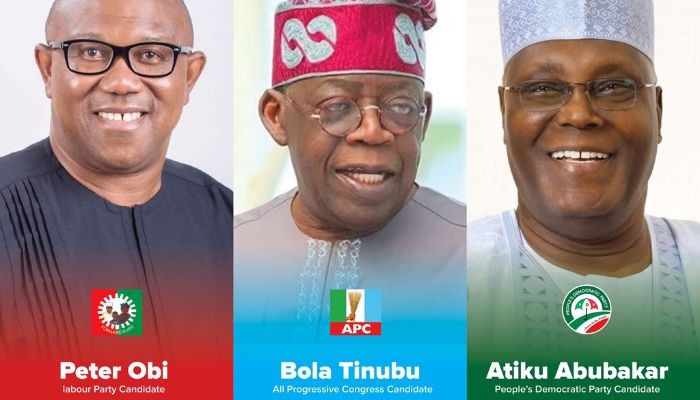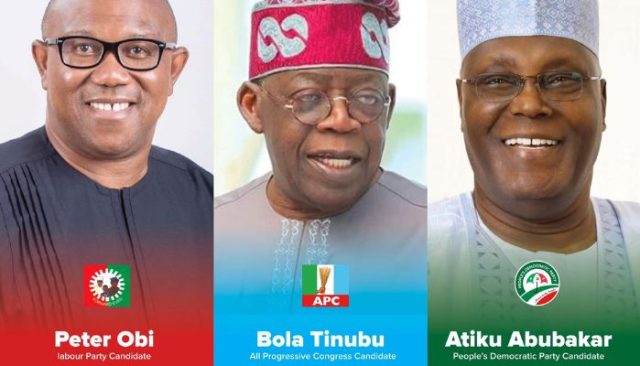
As the 2023 general elections draw near, it is pertinent for all electorates to be aware of the laws guiding elections in Nigeria and the provisions enshrined in the Electoral Act 2022.
Although, there are so many laws stipulated by the Electoral Act that citizens are expected to take into cognizance.
We have compiled the following underlisted laws which will help citizens scale through the coming elections without getting entangled in electoral offences prescribed by the Electoral Act 2022.
The Electoral Laws As It Concerns Electorates
Section 121— Bribery and conspiracy
(1) Any person who does any of the following
(a) directly or indirectly, by his or herself or by any other person on his or her behalf, corruptly makes any gift, loan, offer, promise, procurement or agreement to or for any person, in order to induce such person to procure or to endeavour to procure the return of any person as a member of a legislative house or to an elective office or the vote of any voter at any election.
(b) upon or in consequence of any gift, loan, offer, promise, procurement or agreement corruptly procures, or engages or promises or endeavours to procure, the return of any person as a member of a legislative house or to an elective office or the vote of any voter at any election.
(c) advances or pays or causes to be paid any money to or for the use of any other person, with the intent that such money or any part thereof shall be expended in bribery at any election, or who knowingly pays or causes to be paid any money to any person in discharge or repayment of any money wholly or in part expended in bribery at any election.
(d) after any election directly, or indirectly, by his or herself, or by any other person on his or her behalf receives any money or valuable consideration on account of any person having voted or refrained from voting, or having induced any other person to vote or refrain from voting or having induced any candidate to refrain from canvassing for votes for his or herself at any such election, commits an offence and is liable on conviction to a maximum fine of N500,000 or imprisonment for a term of 12 months or both.
(2) A voter commits an offence of bribery where before or during an election directly or indirectly by his or herself or by any other person on his or her behalf, receives, agrees or contracts for any money, gift, loan, or valuable consideration, office, place or employment, for his or herself, or for any other person, for voting or agreeing to vote or for refraining or agreeing to refrain from voting at any such election.
(3) Nothing in this section shall extend or apply to money paid or agreed to be paid for or on account of any lawful expenses bona fide incurred at or concerning any election.
(4) Any person who commits the offence of bribery is liable on conviction to a maximum fine of N500,000 or imprisonment for a term of 12 months or both.
(5) Any person who conspires, aids or abets any other person to commit any of the offences under this Part of this Act commits the same offence and is liable to the same punishment.
(6) For the purpose of this Act, a candidate shall be deemed to have committed an offence if it was committed with his or her knowledge and consent.
122— Requirement of secrecy in voting.
(1) Every person in attendance at a polling unit including every officer charged with the conduct of an election and his or her assistants and every polling agent and candidate in attendance at a polling station or at the collation centre, as the case may be, shall maintain and aid in maintaining the secrecy of the voting.
(2) No person in attendance at a polling booth under this section shall, except for some purpose authorised by law, communicate to any person information as to the name or number on the register of any voter who has or has not voted at the place of voting.
(3) No person shall:
(a) interfere with a voter casting his or her vote, or by any other means obtain or attempt to obtain in a polling unit, information as to the candidate for whom a voter in that place is about to vote for or has voted for.
(b) communicate at any time to any other person information obtained in a polling unit as to the candidate to whom a voter is about to vote or has voted for.
(4) Any person acting contrary to the provisions of this section commits an offence and is liable on conviction to a maximum fine of N100,000 or imprisonment for a term of three months or both.
123 — Wrongful voting and false statements.
Any person who:
(a) votes at an election or induces or procures any person to vote at an election, knowing that he or she or such person is prohibited from voting at the election ; (b) before or during an election, publishes any statement of the withdrawal of a candidate at such election knowing it to be false or reckless as to its truth or falsity.
(c) before or during an election publishes any statement as to the personal character or conduct of a candidate calculated to prejudice the chance of election of the candidate or to promote or procure the election of another candidate and such statement is false and was published without reasonable grounds for belief by the person publishing it that the statement is true, commits, an offence and is liable on conviction to a maximum fine of N100,000 or imprisonment for a term of six months or both.
124 — Voting by unregistered person
(1) Any person who knowingly votes or attempts to vote in a constituency in respect of which his or her name is not on the register of voters commits an offence and is liable on conviction to a maximum fine of N100,000 or imprisonment for a term of six months or both.
(2) Any person who knowingly brings into a polling unit during an election a voter’s card issued to another person commits an offence and is liable on conviction to a fine of N100,000 or imprisonment for a term of six months or both.
125 — Disorderly conduct at elections
Any person who at an election acts or incites others to act in a disorderly manner commits an offence and is liable on conviction to a maximum fine of N500,000 or imprisonment for a term of 12 months or both.
126 — Offences on election day.
(1) No person shall do any of the following acts or things in a polling unit or within a distance of 300 metres of a polling unit on the date on which an election is held.
(a) canvass for votes.
(b) solicit for the vote of any voter.
(c) persuade any voter not to vote for any particular candidate.
(d) persuade any voter not to vote at the election.
(e) shout slogans concerning the election.
(f ) be in possession of any offensive weapon or wear any dress or have any facial or other decoration which in any event is calculated to intimidate voters.
(g) exhibit, wear or tender any notice, symbol, photograph or party card referring to the election.
(h) use any vehicle bearing the colour or symbol of a political party by any means whatsoever.
(i) loiter without lawful excuse after voting or after being refused to vote.
(j) snatch or destroy any election materials.
(k) blare siren.
(2) No person shall within the vicinity of a polling unit or collation centre on the day of which an election is held:
(a) convene, hold or attend any public meeting during the hours of poll as may be prescribed by the Commission.
(b) unless appointed under this Act to make official announcements, operate any megaphone, amplifier or public address apparatus.
(c) wear or carry any badge, poster, banner, flag or symbol relating to a political party or to the election.
(3) A person who contravenes any of the provisions of this section commits an offence and is liable on conviction to a fine of N100,000 or imprisonment for a term of six months for every such offence.
(4) Any person who snatches or destroys any election material or any election device, commits an offence and is liable on conviction to imprisonment for a term of 24 months.
127 — Undue influence.
A person who:
(a) corruptly by his or herself or by any other person at any time after the date of an election has been announced, directly or indirectly gives or provides or pays money to or for any person for the purpose of corruptly influencing that person or any other person to vote or refrain from voting at such election, or on account of such person or any other person having voted or refrained from voting at such election.
(b) being a voter, corruptly accepts or takes money or any other inducement during any of the period stated in paragraph (a), commits an offence and is liable on conviction to a fine of N100,000 or imprisonment for a term of 12 months or both.
128 —Threatening
A person who:
(a) directly or indirectly, by his or herself or by another person on his or her behalf, makes use of or threatens to make use of any force, violence or restrain.
(b) inflicts or threatens to inflict by his or herself or by any other person, any minor or serious injury, damage, harm or loss on or against a person in order to induce or compel that person to vote or refrain from voting, or on account of such person having voted or refrained from voting.
(c) by abduction, duress, or a fraudulent device or contrivance, impedes or prevents the free use of the vote by a voter or thereby compels, induces, or prevails on a voter to give or refrain from giving his vote.
(d) prevents any political aspirant from free use of the media, designated vehicles, mobilisation of political support and campaign at an election, commits an offence and is liable on conviction to a fine of N1,000,000 or imprisonment for a term of three years.







